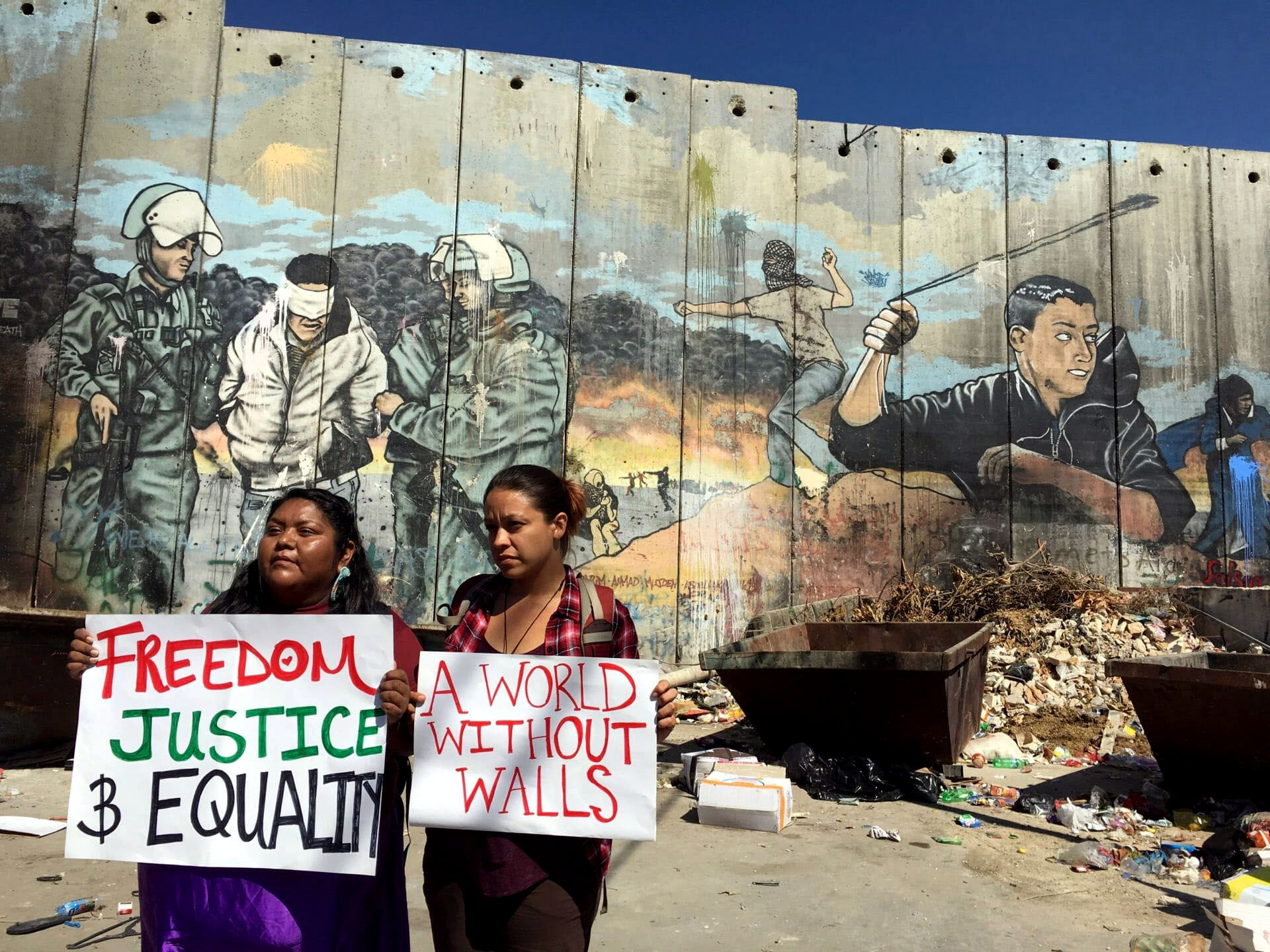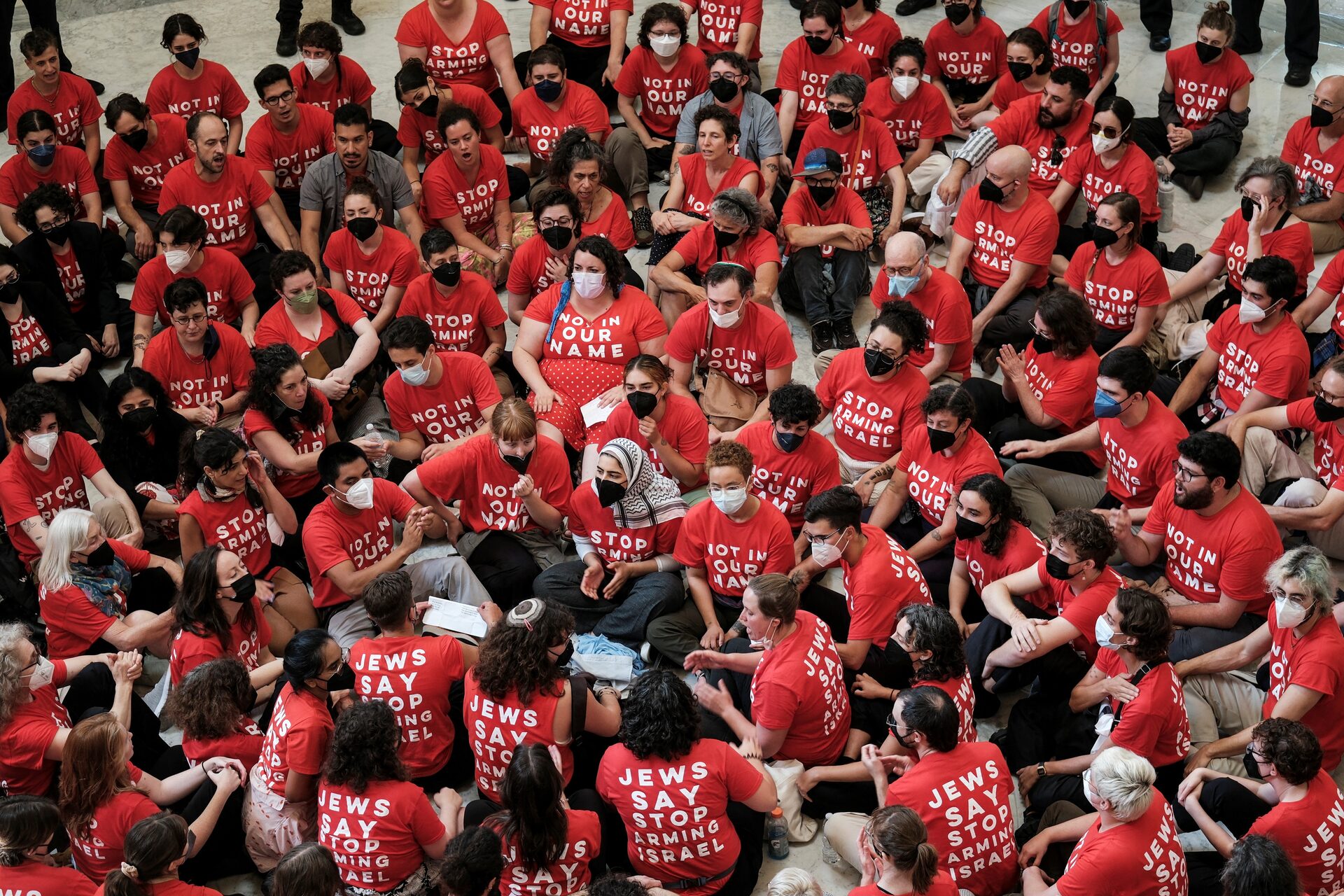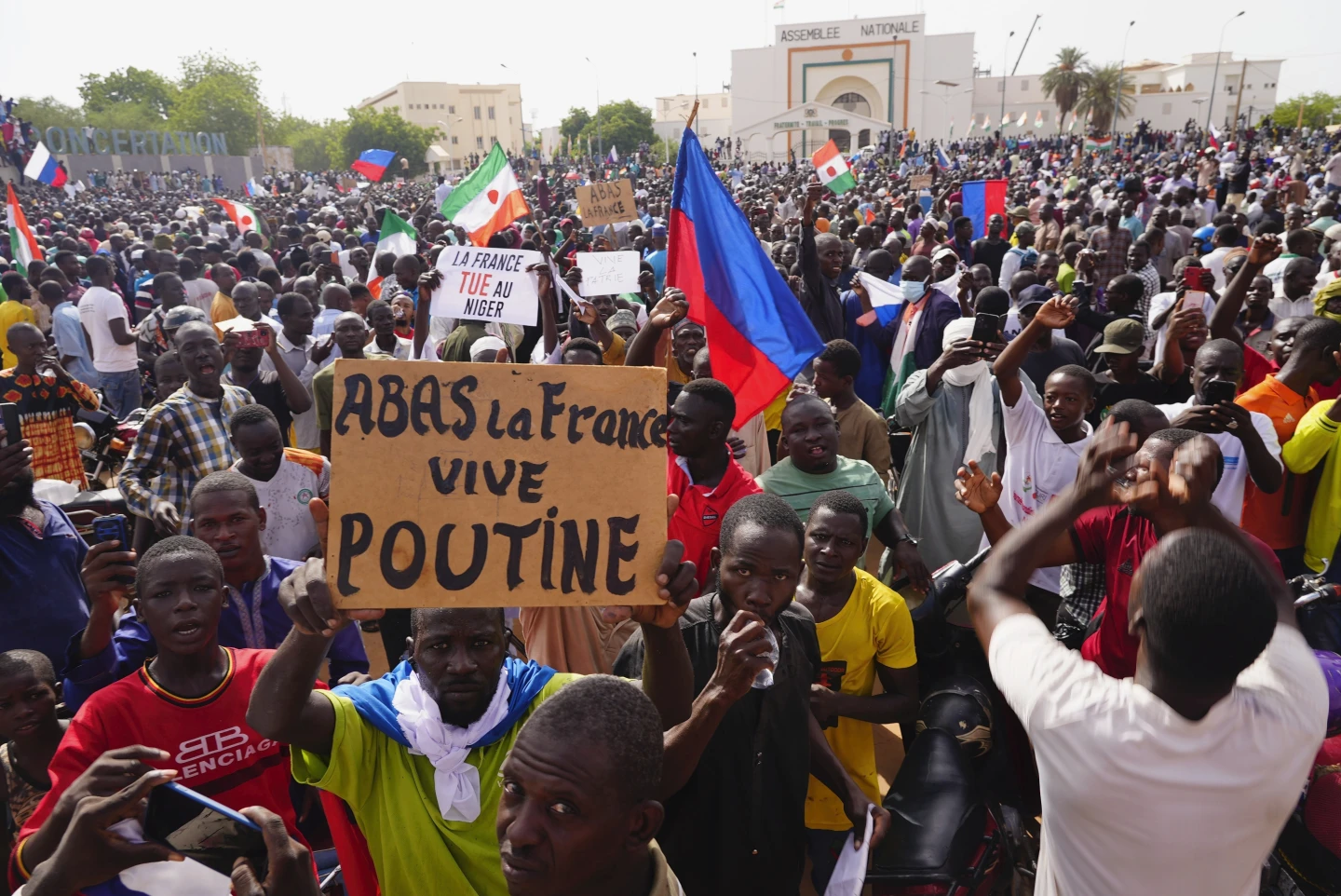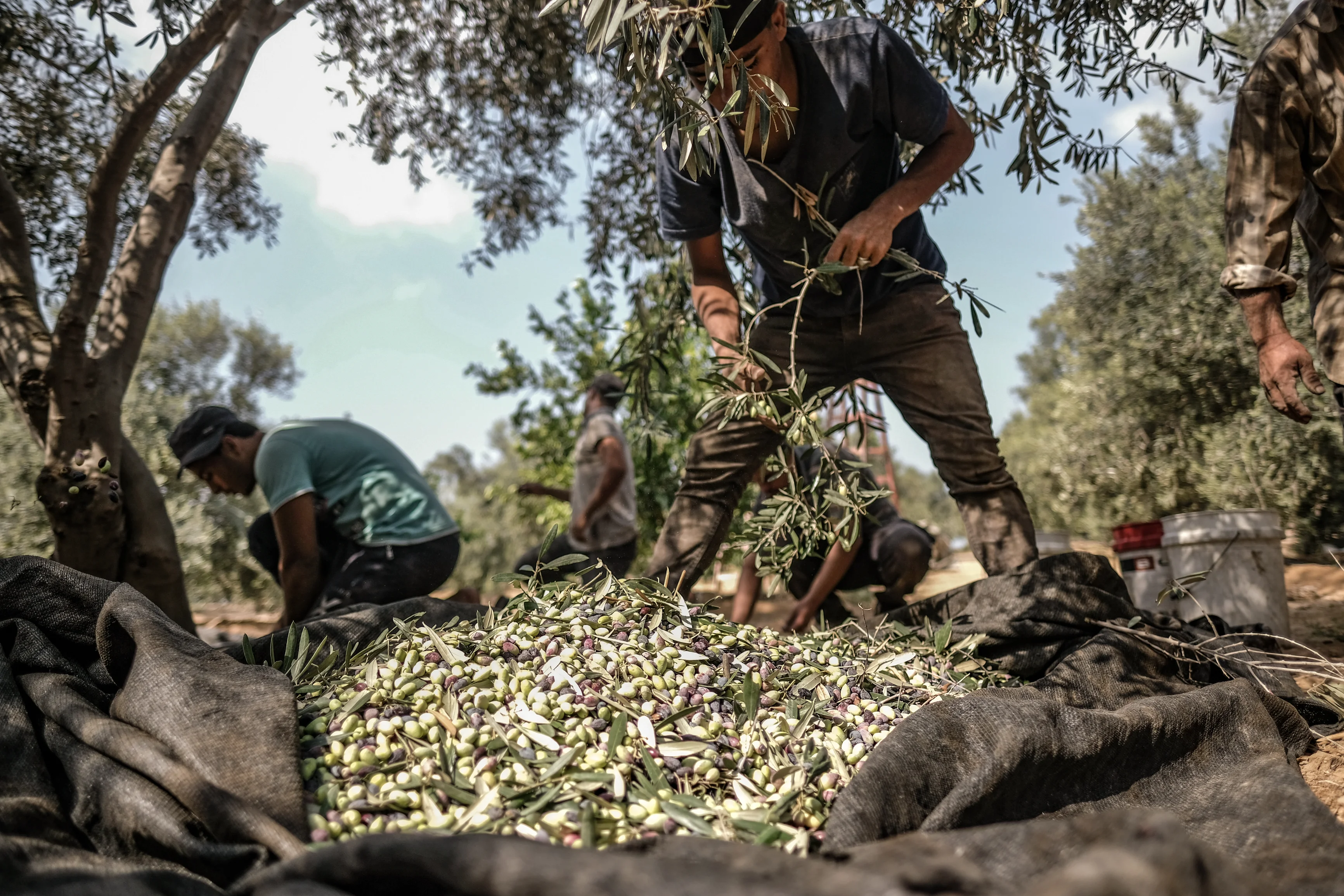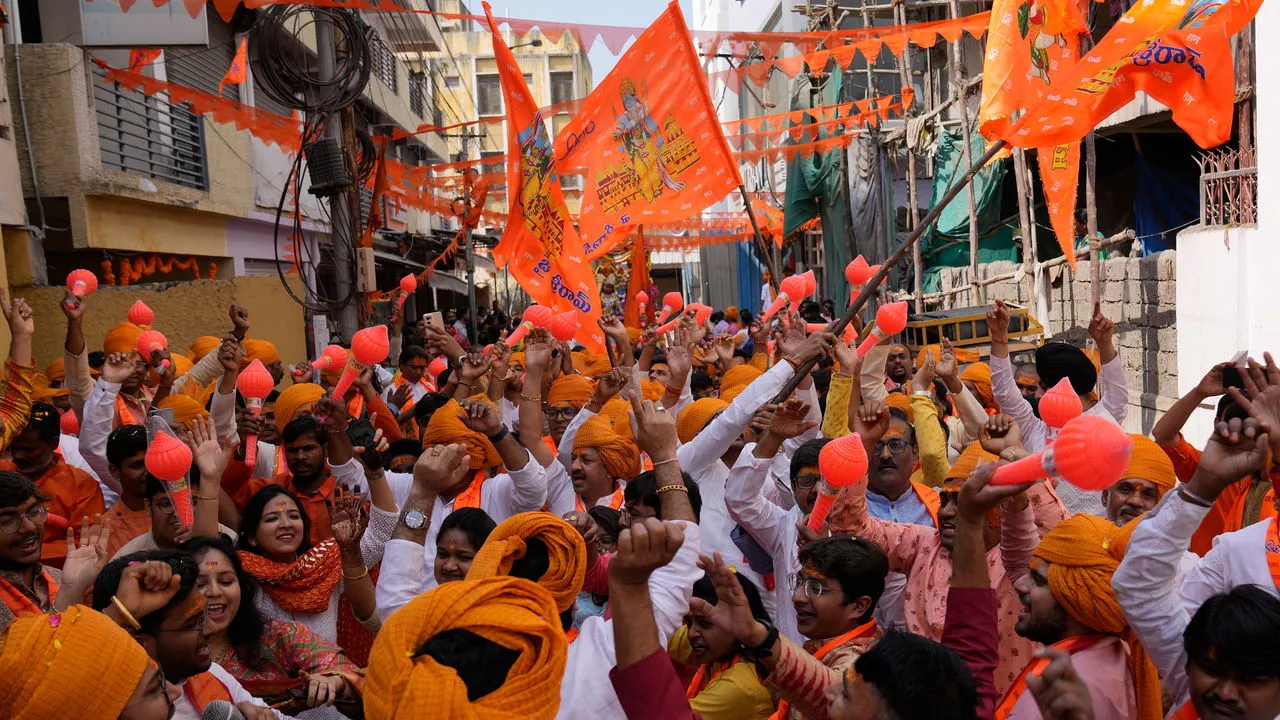In the Name of Love
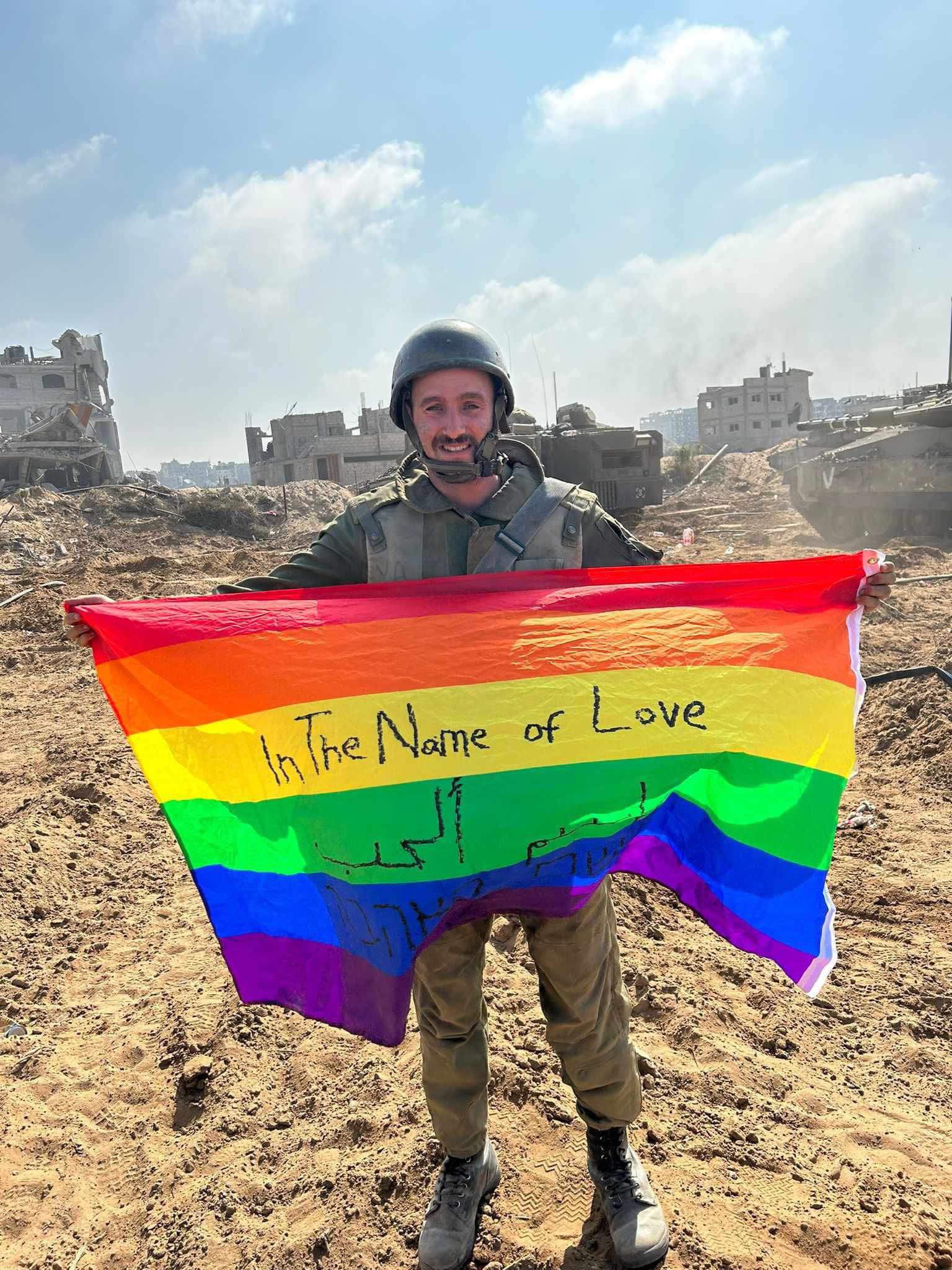
The photograph damns itself. Israeli Occupation Forces soldier Yoav Atzmoni is standing in the ruins of al-Atatra, Gaza, grinning and brandishing a rainbow flag. He has scrawled the declaration “In The Name of Love” across its surface in English, Arabic, and Hebrew. Atzmoni tells reporters that he views Israel, unlike its neighboring countries, as a defender of LGBTQ+ rights; his mission in Gaza is a liberatory one. In a speech before the U.S. Congress in July 2024, Benjamin Netanyahu said as much directly. “Some of these protesters hold up signs proclaiming ‘Gays for Gaza,’” the war criminal told his audience, ripping off a right-wing meme. “They might as well hold up signs saying ‘Chickens for KFC.’”
This is a distraction, not an argument, and it should be treated as such: If Israeli politicians cared about gay people, they would not be bombing them. Queer Palestinians have said repeatedly, as if they needed to, that the primary threat to their existence is not other Palestinians but the Zionist state. “My family in Palestine actually loves my drag. Palestinians are very chill. But people in Gaza are under a lot of stress, they live under apartheid,” drag artist Mama Ganuush said last May. “I have queer cousins in Gaza. Their priority is not to go to gay pride, their priority is literally to survive.”
Why does Israel continue to declare its support for the gays, even as its depravity renders the declaration farcical? The IOF soldiers who plant rainbow flags in the rubble of Palestine are not revealing anything new about IOF soldiers, whose genocidal intentions have, after all, been obvious for decades. But these photo ops may be able to tell us something important about the rainbow flag. In a literal sense, the liberal view of pride is of a wasteland: a queer Palestine without any queer Palestinians, a parasite that has killed its host. And if genocide can be excused in the name of love, then the queer liberation movement must be built on something stronger.
The term pinkwashing has long been used to describe how Israel presents itself as a defender of LGBTQ+ rights to justify its occupation of Palestine. The logic of pinkwashing, as advanced by Western pundits and politicians, conflates queer freedom with a branding of Pride specific to the United States, watered down and commodified into rainbow-embossed goods. Atzmoni said that he wanted to bring rainbow flags to Palestinians; last fall, a far-right group offered $1 million to any advocacy organization willing to hold a pride parade in Gaza. To hear the imperialists tell it, any gay person anywhere in the world must have the parading gene inside them, and being unable to parade can only indicate cultural repression. Then again, pride parades are a distinctly American tradition, born from the Stonewall riots of 1969, their radical potential defanged by American corporations and their profits reinvested in American police. Why should anyone’s sexuality express itself this way?
Although queer Palestinians, like queer Americans, face persecution, discrimination, and violence, there are no legal prohibitions on homosexuality in Palestine. The closest thing to anti-gay legislation is the unenforced British Mandate Criminal Code of 1936, which was introduced in Gaza by British colonial officials. Indeed, the British and French imperialists who colonized the Arab world justified their conquest with the promise of civilization, deploying the region’s acceptance of homosexuality as evidence of its barbaric nature.
But it wasn’t just that Europeans imported Western homophobia into their colonies. The policing strategies Europeans developed to suppress queer people abroad formed the blueprint for anti-queer policies back home. For instance, as the historian Jules Gill-Peterson argues in her recent book A Short History of Trans Misogyny, some of the first anti-trans laws were invented in colonial India. There, British officers saw hijras — a population of ascetics who performed a diversity of spiritual roles — as a threat to colonial ideas about sexuality, and instituted policies to violently strip them of their rights. Colonizers around the world encountered astonishingly different groups of people, from Crow badés to Filipino babaylan; interpreted them, regardless of how they might view themselves, as men pretending to be women; and forced them to cut their hair and wear masculine clothes. By doing so, the West marked these people not just as transgressive, but transgressive in the same way. Armed for the first time with a unified vision of what people with non-normative genders and sexualities looked like, colonizers returned to their home countries and created laws restricting them.
In other words, the idea of any universal queer identity was itself the result of colonization, blending countless people, cultures, and spiritualities into alphabet soup. Both activists and settlers have used this consolidation to their advantage: Today, the West presents LGBTQ+ rights as desirable, and Israel is free to portray its occupation as defending Palestinian sexuality rather than policing it. And yet Zionism’s interest in queerness is brutal and utilitarian, the same kind of interest you might take in a hammer. In their routine surveillance of Palestinians, IOF officers use evidence of homosexuality to blackmail gay men into working as informants, rendering gay Palestinians as potential traitors. Palestinians who move to Israel in search of a supposedly gay-friendly society are met with police brutality, prevented from accessing employment and basic healthcare, and given permits that allow them to stay no longer than a few months. “I would have rather died in the West Bank than live here like this,” one such Palestinian told +972 Magazine.
Like the global networks of colonial violence that Gill-Peterson traces, the strategies that Israel has invented to target gay Palestinians are coming back home. In America, queer people — particularly trans women — now face the worst systemic assault on our rights and safety many of us have ever experienced. This assault is occurring not because our governing party are transphobes, although they are, but because they are fascists. Trans people are a vulnerable group who politicians and journalists of both parties have been unwilling to defend, a population to experiment on with repressive tactics before expanding their scope; it would be a mistake to believe that we are exceptional, rather than just near the front of the line. Banning trans women from public bathrooms incites violence against all women, cis and trans, who are judged to be insufficiently feminine. Outlawing medical transition endangers the lives of anyone who uses or needs medicine. The narrative that trans women are inherently deceitful and violent, and that they should be imprisoned to prevent them from committing rape, reprises the claims that have been made about Palestinians and Black people since the advent of colonialism. How can we hope to respond?
To achieve real solidarity, we might first rid ourselves of the notion that there should be any particular rules dictating what someone’s queerness — whatever that is — can look like. Queerness must be expansive, and to permit this expansion, it cannot rely on the protection of the state. We could look to the improvised networks of care that have allowed Palestinians to access HIV medication even after Gaza’s hospitals were destroyed, or to the people who have taken up arms to defend their loved ones. “Religious people, and even people from Hamas ... some of them are gay, and in the new generations it’s way more common than what you would think,” one Gazan told journalist Afeef Nessouli. “One of them was trying to link up with me ... I didn’t know he was a fighter until he got martyred.”
Appealing to Americans’ capacity to hold pride parades and score brand deals with beer companies will not get us out of this one. Love is no longer enough. It has never been enough for most queer and trans people, who have led breathtaking lives thanks not to representation but survival tactics. Nor for the colonized people whose dissident sexualities have been warped and weaponized by empire: first as something to be stamped out, then as something to be protected. That kind of protection is stained in blood. What we need instead is to learn how to fight.
